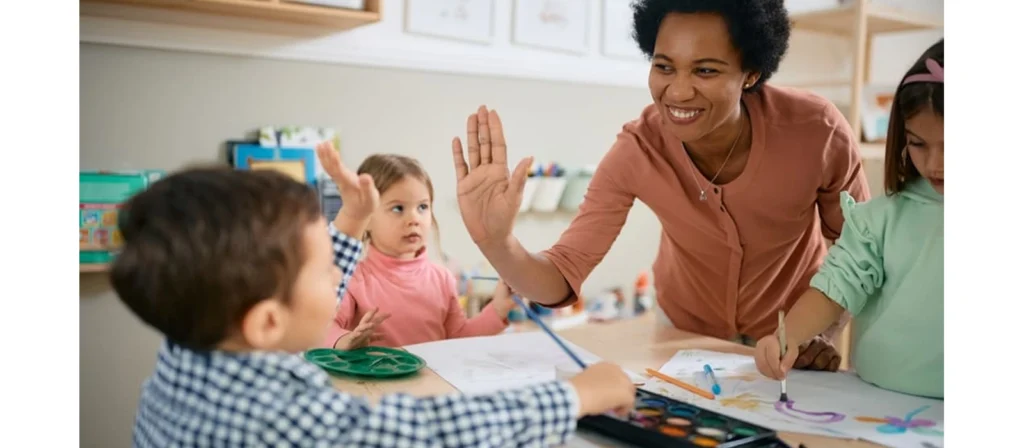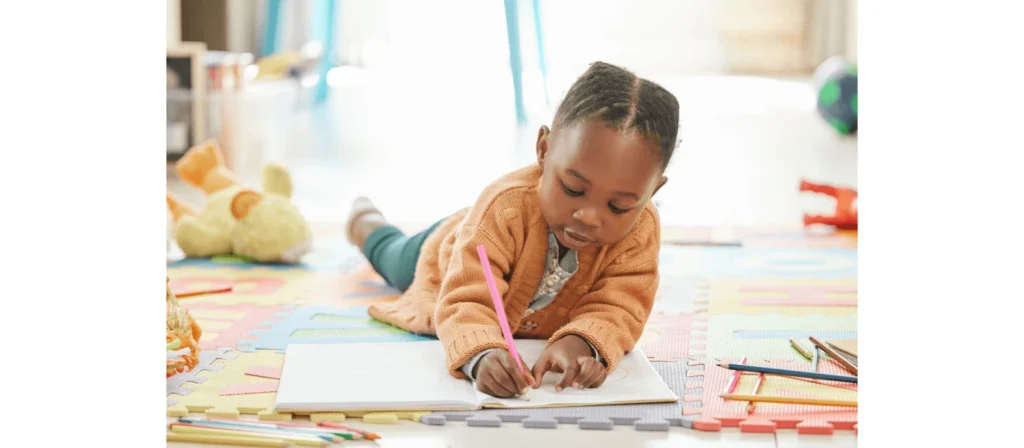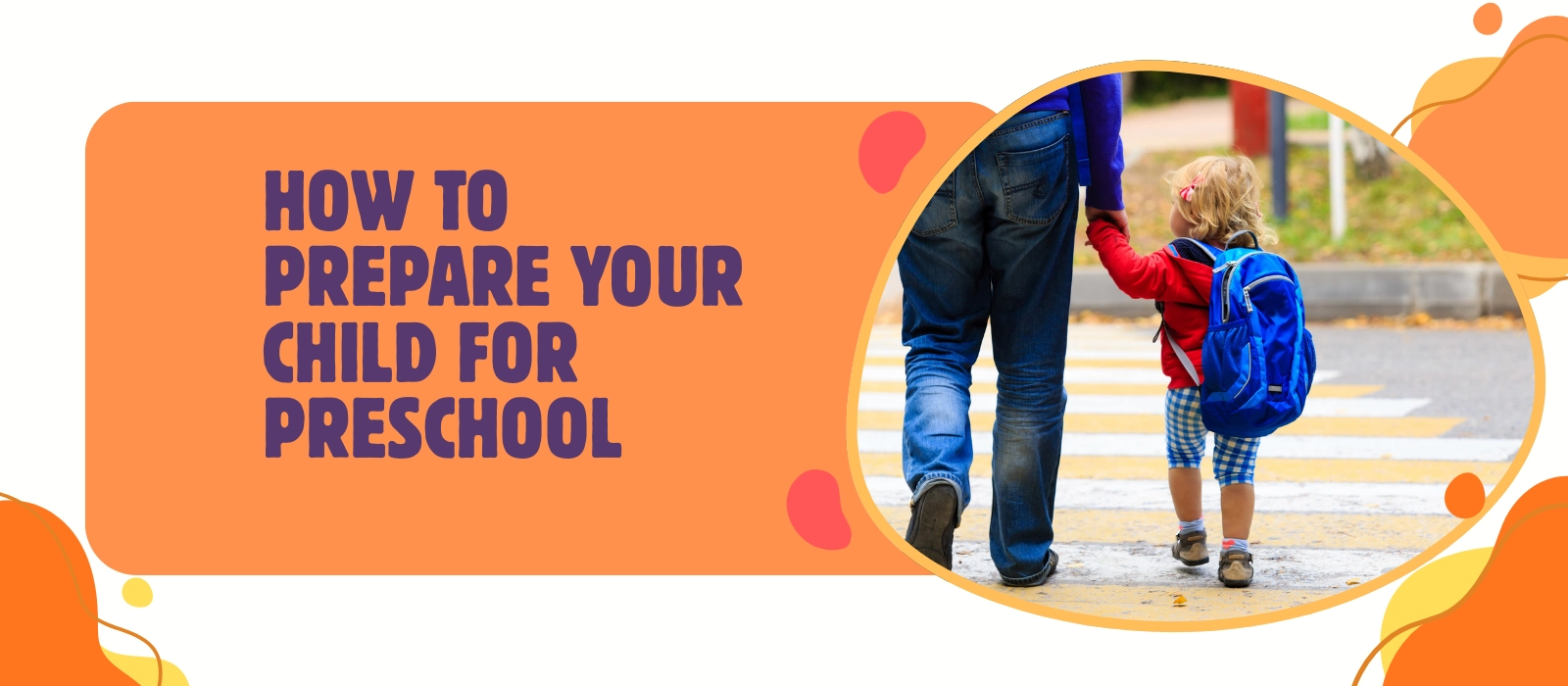Preparing your child for preschool is an important process that sets the tone for their educational journey. Starting preschool can be both exciting and overwhelming, and the way you prepare your child can greatly influence how smoothly they adjust. By laying the right foundation, you can help your child feel confident, secure, and excited about this next step in their life. Here are some key strategies to help you prepare your child for preschool.
Early Preparation Tips: Visiting the School, Establishing Routines, and Creating Excitement About Learning
When do kids start preschool? Early preparation can ease the transition to preschool. One of the most effective ways to prepare your child is by visiting the school before the first day. If possible, arrange a tour of the preschool, where your child can see the classrooms, meet the teachers, and explore the environment. Familiarity with the school will help reduce anxiety and make your child feel more comfortable on their first day.
Establishing routines at home is another important preparation step. Preschool follows a structured routine, and children who are accustomed to a predictable schedule are more likely to adjust smoothly. Start by setting regular wake-up times, meal times, and bedtimes. A consistent morning routine, including getting dressed and having breakfast at the same time each day, can help your child get used to the structure they will experience in preschool.
In addition to routines, it’s important to create excitement about learning. When do kids start preschool? If your child is excited about the idea of going to school, they are more likely to approach the experience with a positive attitude. Talk about the fun activities they will do, the friends they will meet, and the things they will learn. Read books about starting school or engage in pretend play where your child can “play school” and act out scenarios they might encounter. This can help them build a positive association with the idea of preschool.
Building Confidence: Ways to Help Your Child Feel Secure and Excited About Preschool
When do kids start preschool? Building your child’s confidence is essential to ensuring they feel secure and excited about preschool. A child who feels confident and comfortable in the preschool environment is more likely to thrive academically and socially. Start by fostering a sense of independence at home. Encourage your child to complete simple tasks on their own, such as dressing themselves, cleaning up their toys, or getting their backpack ready for the day. These small acts of independence help your child feel capable and ready to handle the challenges they will face in preschool.

It’s also important to reassure your child that preschool is a fun and exciting place. Let them know that it’s okay to feel nervous, but also remind them of the exciting activities and new experiences they will have. Positive reinforcement goes a long way in helping children feel secure. Praise your child’s bravery when they talk about preschool or when they show excitement about learning new things. This reinforces the idea that preschool is a positive experience and something to look forward to.
In addition to confidence-building at home, help your child practice being away from you. When do kids start preschool? A gradual separation process, such as leaving your child with a trusted family member or friend for short periods, can help your child become more comfortable with the idea of being away from you. This will make it easier for them to handle the separation on their first day of preschool, reducing any anxiety they may feel about leaving home.
Setting Expectations: Discussing What Preschool Will Be Like and Making It Sound Fun and Engaging
When do kids start preschool? Setting clear and realistic expectations about what preschool will be like is an essential part of the preparation process. One of the best ways to help your child feel ready for preschool is by talking to them about what to expect. Explain that preschool will be a place where they can learn new things, meet new friends, and have fun playing. Use simple language to describe the daily routine and highlight exciting activities like storytime, art projects, or outdoor play.

Discussing the structure of the day is also helpful. For example, tell your child that they will have snack time, circle time, and playtime, and explain that they may need to follow some rules to make sure everyone has fun. Let them know that there will be opportunities to play with others, but they may also have to wait for their turn or share toys. This helps them understand the expectations of the preschool environment and prepares them for the social dynamics they will encounter.
It’s also important to address any concerns your child may have. If they are nervous about things like being away from you or meeting new people, listen to their concerns and provide reassurance. Let them know that it’s normal to feel a little scared or excited, but remind them that preschool is a fun place where they will learn and grow. When do kids start preschool? The more you discuss and set expectations ahead of time, the more confident and excited your child will feel about starting this new chapter.
When to Consider Delaying Preschool
When do kids start preschool? Many parents may find themselves questioning whether their child is truly ready to begin preschool. While preschool is an exciting milestone, it’s important to recognize that not every child is ready at the same time. If your child is showing signs of emotional or developmental challenges, delaying preschool for a year may be the best choice. Here, we’ll explore the signs that indicate it might be wise to delay preschool, and why delaying isn’t necessarily a negative decision.

Signs Your Child May Not Be Ready Yet
When do kids start preschool? Sometimes, despite the typical age range, children may not be developmentally prepared to start preschool. If your child is displaying certain signs, it may be a good idea to reconsider enrolling them right away. A few key signs that your child may not be ready include:
- Lack of independence: Preschool requires children to manage certain tasks on their own, such as using the bathroom, eating independently, and following a daily routine. If your child is still highly dependent on you for basic tasks or struggles with self-regulation, it might be worth waiting another year to help them build the independence needed to thrive in a preschool environment.
- Severe separation anxiety: While some separation anxiety is normal, especially for younger children, if your child shows signs of intense distress when parting from you, this could be a sign that they are not emotionally prepared for the separation that comes with preschool. When do kids start preschool? If your child is not yet able to manage short separations without extreme distress, it may be beneficial to delay preschool until they are more comfortable being away from home for longer periods.
- Difficulty following basic instructions: Preschool environments require children to listen to and follow simple instructions, such as “sit down,” “raise your hand,” or “put your toys away.” If your child struggles with this level of comprehension or has difficulty staying focused during tasks, it may be a sign they are not ready for the structured nature of preschool. When do kids start preschool? If your child has difficulty engaging in group activities and following directions, it might be a good idea to wait another year.
- Social or emotional struggles: Children who are extremely shy, struggle with interacting with peers, or have difficulty managing their emotions may need more time to develop the necessary social skills for preschool. Preschool involves group play, sharing, and emotional regulation, and children who aren’t quite ready for these social demands may benefit from extra time to grow.
Why Delaying Isn’t a Bad Thing
When do kids start preschool? Delaying preschool for a year isn’t a setback—many children actually benefit from taking that extra year to develop. Some children simply need more time to mature emotionally, socially, or cognitively, and giving them that time can set them up for a more successful preschool experience later. In fact, research suggests that starting preschool too early can lead to struggles with emotional regulation, social integration, or academic stress, particularly for children who are not yet ready for the structure of formal schooling.
By delaying preschool, your child may have the opportunity to develop more independence, self-confidence, and social skills. The extra year can also provide you as parents with more time to help your child build the skills they need for success. For example, if your child is struggling with separation anxiety, delaying preschool for a year allows you to work on that emotional growth through smaller, manageable separations, such as spending time with trusted family members or friends.
Delaying preschool can also reduce pressure on both parents and children. It provides more time for your child to develop at their own pace, without the stress of meeting academic expectations too early. When do kids start preschool? If delaying is the right choice, it’s important to remember that it’s not a sign of failure, but rather a way to ensure that your child has the time they need to grow into the best version of themselves.
In conclusion, deciding when to start preschool is a personal choice, and delaying is not a bad thing. When do kids start preschool? If your child is showing signs of not being ready, consider delaying preschool for a year. The goal is to ensure that your child is fully prepared to thrive in a preschool setting, and sometimes that extra year of growth can make all the difference in their future success.
Conclusion
Starting preschool isn’t a single date on the calendar—it’s a journey built through routines, confidence, and clear expectations. Visit the school, practice short separations, and talk about the day’s rhythm. If your child needs more time, that’s okay—readiness grows at different speeds. Celebrate small wins, keep it playful, and spotlight the friendships and discoveries ahead.
At XIHA Furniture, we help that journey feel smooth and safe. As a factory-direct, one-stop B2B supplier for kindergartens, we design durable, child-safe preschool furniture—sensory tables, cubbies, nap cots, STEM corners—that support routines and spark learning. We ship reliably to North America, Europe, and Australia at competitive wholesale prices, with products built to international standards. Planning or refreshing your classroom? Let’s build a calm, child-centered space together. Contact me at info@xihafurniture.com.



